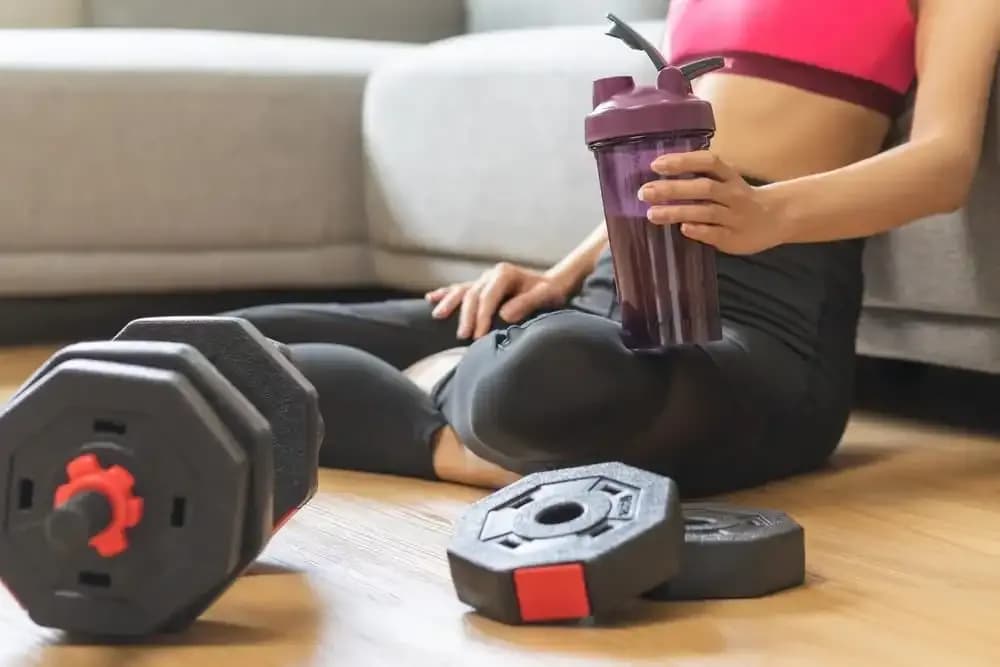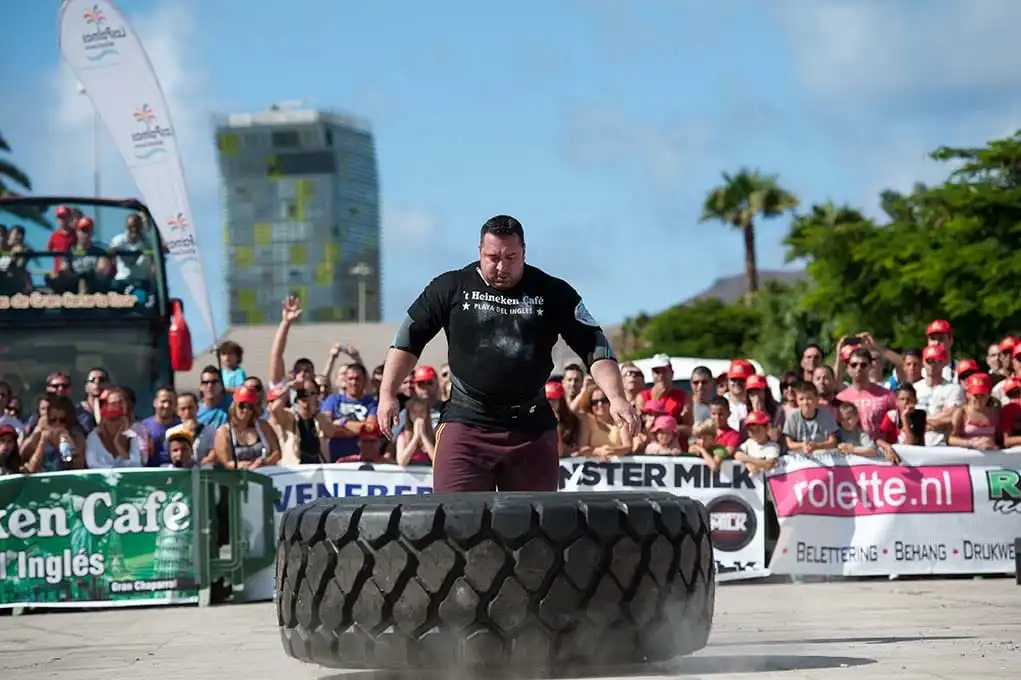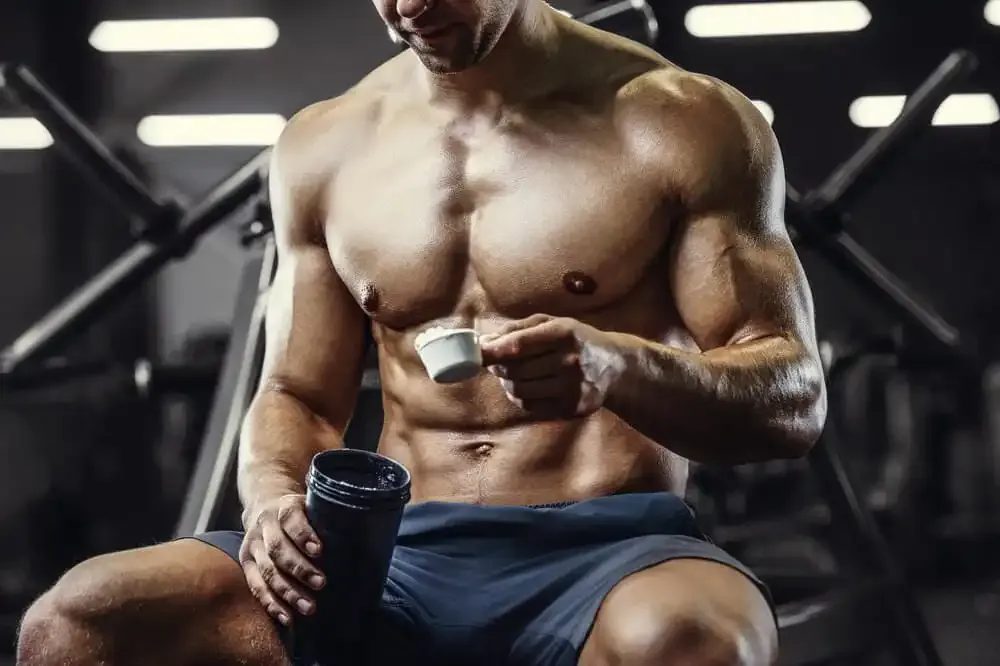Does Creatine Help With Weight Loss
This article will help you learn the basics of creatine supplementation and whether creatine can help with weight loss.
Are you on a weight loss quest? If you’re looking to slim down, supplements like creatine may be something you’re researching. Does creatine help with weight loss? Let’s break down the basics of creatine supplementation to see whether creatine can help you lose weight.
What is Creatine?
If you think you’ve tried every workout, diet, and supplement in the book, you may have come to your final straw. Sorting through all the weight loss powders and supplements on the shelves at sports nutrition stores, creatine powders may have caught your eye.
First, let’s understand what creatine is.
To start, creatine doesn’t just come from supplements. You produce natural creatine in your body. That being said, it’s usually only enough to fuel small amounts of exercise. Not what we’re looking for if you want to lose weight or build serious muscle.
Your cells’ most basic form of fuel is a substance called ATP, or Adenosine Triphosphate.
Inside your muscles, you have naturally occurring creatine stores called phosphocreatine. This substance helps to recycle ATP.
ATP transfers energy to your body’s cells. This facilitates the cellular processes you need to survive. All types of cells in your body rely on energy derived from ATP.
This includes the process of muscle contraction, which happens when you exercise. If you work out frequently, or at a high-intensity training volume, though, you may feel like you need a little help.
Creatine Benefits
Gruelling workouts that athletes do can often feel tiring. This is where a little creatine boost may come in handy. The effects that you’ll feel when taking creatine may include:
- More energy to work out
- A slight strength increase
- The ability to add more reps to a set before failure
- The look of fuller or denser muscles (better “pump”)
Let’s say you’re doing some intense exercise. Maybe you’re going for a PB or one-rep max. Perhaps you’re feeling too lazy to work out. Chances are, you’re gonna need a little more fuel than the average person.
In the sports and athletic performance world, there’s good evidence to show that creatine may increase your strength and lean muscle stores.
This happens when you do heavy resistance training. There’s good evidence that supplementing your weightlifting routine with creatine can help you boost performance.
Creatine does occur naturally in the foods you eat. It is available mainly in animal products including:
- Red meat
- Poultry
- Seafood and fish
This is where a supplement like creatine comes in.
This substance gives most people the quick jolts of energy that they need to get better at explosive exercises.
How Does Creatine Work?
When you take a creatine monohydrate or micronized supplement, most of it goes to your skeletal muscles.
In the muscles, creatine is converted into phosphocreatine (aka creatine phosphate). From here, it helps generate the ATP that powers your muscles.
What this does is create a larger usable supply of energy for your muscles to support your workouts. You may notice yourself feeling more energetic and see better workout performance.
In the study Role of Creatine Supplementation in Exercise-Induced Muscle Damage: A Mini Review, findings indicated that creatine supplementation may be associated with a better capacity for repair from muscular damage after workouts.
This applied to high-intensity workouts. The authors of the study noted that this was of particular interest to those in the athletic training rehabilitation field and would require more research.
Although it sounds like a bad thing, don’t be fooled! Muscular damage is essential in getting your muscles to grow.
After an intense workout, your body’s muscle fibers become damaged through effort. After the workout, your body then works to repair them, leading them to grow back bigger and stronger. Eventually, over time with consistent workouts, this will increase the size of your muscles.
Research on Creatine for Weight Loss
In terms of using creatine as a weight loss supplement, the research seems to be mixed on the topic.
There is some evidence that points to creatine being beneficial for losing fat. The study Changes in Fat Mass Following Creatine Supplementation and Resistance Training in Adults ≥50 Years of Age: A Meta-Analysis found some benefits of creatine for fat loss.
That being said, it’s important to differentiate weight loss from fat loss too. Although when we talk about losing weight, what most people mean is losing fat, the amount of muscle makes a huge difference in the overall weight of your body too.
5 pounds of muscle vs. fat is far more dense and gives the body a slimmer appearance. People with high concentrations of muscle may weigh a lot but will often look svelte and toned.
In comparison with people that have high body fat, the weight will usually sit on a muscular person more attractively.
Can Creatine Help You Lose Weight?
The only thing that will help you lose weight is overall body fat loss, sometimes combined with the loss of muscle.
Creatine is not a fat burner. There’s no miracle hack or pill you can take and magically shed pounds.
That being said, it can improve your energy, workout habits, and potentially your capacity to build lean muscle.
All these factors can indirectly lead to weight loss, but just taking creatine and hoping for the best isn’t likely to help you hit or maintain your weight loss goals.
If you are looking to lose weight, it’s important to consider these factors:
Diet
Maintaining a clean diet is the most efficient way to shed pounds. Focusing on whole foods, rather than eating things that are highly processed is most likely to lead to the best weight loss outcomes.
Focus on incorporating healthy fats, complex carbs and lean high-quality protein into your diet. A dialed-in diet can help promote weight loss, improve weight management or kickstart a weight loss journey.

Hydration
Drinking enough water can be a great way to improve your weight loss potential. In the absence of food calories, water can make you feel full.
Proper hydration also helps you fuel your body better for workouts. Because we sweat, we lose a lot of water during exercise, so making sure to hydrate, especially when you’re working on an exercise routine is key.
Mindful Eating
Available research suggests that “going on a diet,” aka cutting calories or changing up the way you eat temporarily is not associated with long-term weight loss. Make sure not to confuse this idea with “diet” as a catchall term for the things you eat.
In obesity studies, research illustrates the idea that most weight loss follows a similar pattern: early rapid weight loss, a plateau, and then a progressive regain over time.
Check out Maintenance of Lost Weight and Long-Term Management of Obesity for more information.
Maintaining weight loss should be considered a lifestyle shift, not a quick crash or fad diet. To adapt your lifestyle and create a healthier body, focus on mindful eating. You can learn more in Mindful Eating: The Art of Presence While You Eat.
Although it can be tempting to track every macronutrient you’re eating down to the last calorie
(there are cases where this strategy may be beneficial, like for short-term weight loss), if you’re hoping for permanent weight loss, the best strategy is generally to reframe the way you eat.
Proper Sleep
Resting well is one of the best things we can do for our health and longevity.
As we continue the move into a 24/7 working culture with asynchronous work models in place at companies around the globe, more people need more sleep. Sleep deprivation is considered a global public health problem.
If you want to learn more about the global problem of insufficient sleep and its serious public health implications several studies from the American Academy of Sleep Medicine (AASM), the Sleep Research Society (SRS) and the National Sleep Foundation (NSF) show that most adults need anywhere from 7-9 hours of sleep per night.

Of course, this depends on your age, fitness level, and personal health conditions and genetics.
What happens when you don’t sleep well? Insufficient REM sleep (deep sleep) leads to problems with:
- Cognition
- Mood
- Focus
- Mental health
- Disease risk
The Takeaway
Creatine can help you lose weight by making your workouts feel easier.
Supplementing with a creatine powder or capsule can help you feel more energetic during exercise so you have more stamina to get through tough workouts.
Some evidence shows that creatine supplements may also help with better recovery after muscle damage from exercise. This can lead to your body adapting to put on more lean muscle.
Working this way over time can reduce your amount of body fat and increase muscle gains leading to a slimmer look. The reduction in body fat may make you lose weight, but sometimes extra muscle weighs just as much (although you will probably look and feel better).
All this to say, the way to lose weight is to reduce your overall calorie intake.
Focusing on your diet and reducing the daily calories you consume can be a great way to slowly and sustainably drop weight. Cutting 250-500 daily calories is a good way to ensure sustained weight loss over time for most people.
Or, if you want to lean bulk, an additional 250-500 calories may help you put on healthy muscle.
Whether you are looking to lean bulk or dirty bulk up, focus on avoiding crash diets. Instead, think about making small changes to your diet or lifestyle routines that you can continue over time.
Supplement Tips
If you are thinking about adding creatine to the mix, make sure you are buying your creatine powder from a reputable vendor. Consult with a registered dietitian if you have any concerns about supplements or weight loss programs and your overall health.
Whether you're focused on weight loss or weight gain, an adequate protein intake is one of the best ways to make sure you're reaping maximum health benefits.
Protein powders are another key way to supplement your workouts. Have any concerns about supplements? This guide on how protein powder is made if that’s another option you’re exploring.
References :
Forbes, S. C., Candow, D. G., Krentz, J. R., Roberts, M. D., & Young, K. C. (2019). Changes in Fat Mass Following Creatine Supplementation and Resistance Training in Adults ≥50 Years of Age: A Meta-Analysis. Journal of functional morphology and kinesiology, 4(3), 62. https://doi.org/10.3390/jfmk4030062
Hall, K. D., & Kahan, S. (2018). Maintenance of Lost Weight and Long-Term Management of Obesity. The Medical clinics of North America, 102(1), 183–197. https://doi.org/10.1016/j.mcna.2017.08.012
Kim, J., Lee, J., Kim, S., Yoon, D., Kim, J., & Sung, D. J. (2015). Role of creatine supplementation in exercise-induced muscle damage: A mini review. Journal of exercise rehabilitation, 11(5), 244–250. https://doi.org/10.12965/jer.150237
Nelson J. B. (2017). Mindful Eating: The Art of Presence While You Eat. Diabetes spectrum : a publication of the American Diabetes Association, 30(3), 171–174. https://doi.org/10.2337/ds17-0015
Wax, B., Kerksick, C. M., Jagim, A. R., Mayo, J. J., Lyons, B. C., & Kreider, R. B. (2021). Creatine for Exercise and Sports Performance, with Recovery Considerations for Healthy Populations. Nutrients, 13(6), 1915. https://doi.org/10.3390/nu13061915
Related articles
How Is Protein Powder Made? Whey, Casein and Vegan Proteins
Supplement Snapshot: Can Protein Powder Go Bad?
Creatine + Protein Powder: Mass Gains or Disaster?
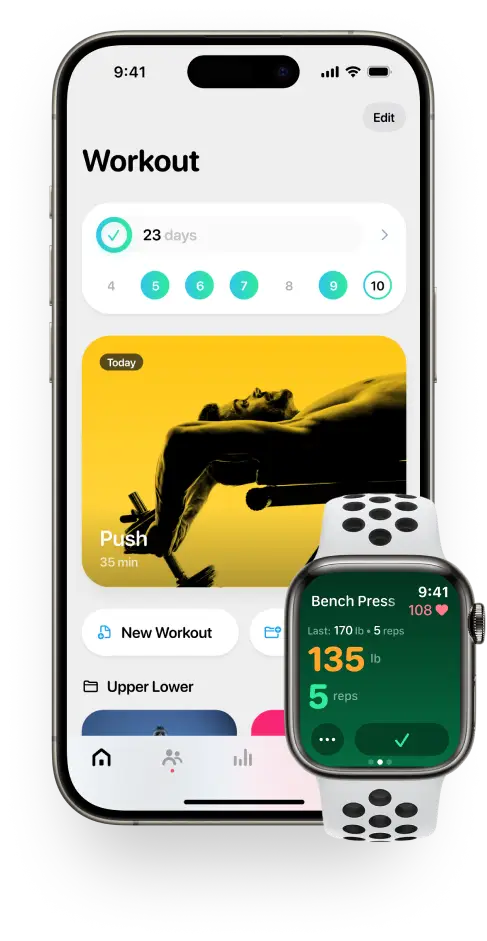
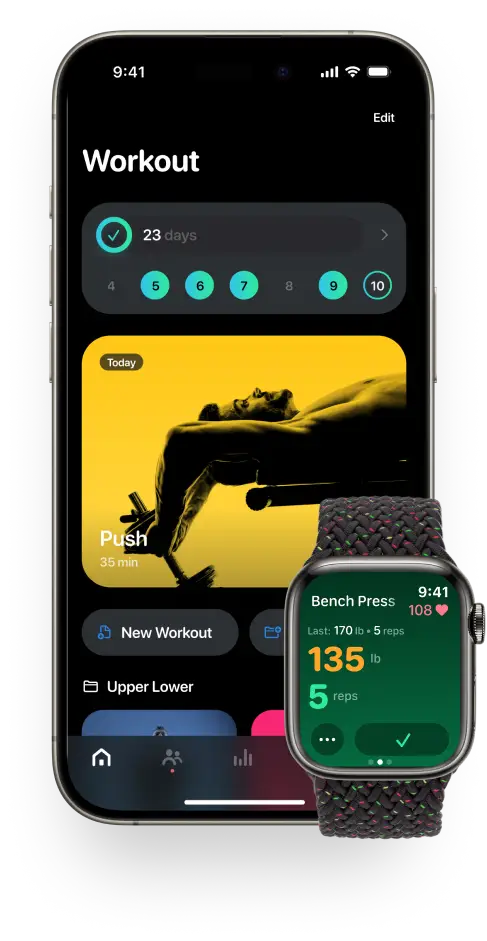
Get fit with Flex
Build muscle & lose weight fast for free.
Available on iPhone + Apple Watch
